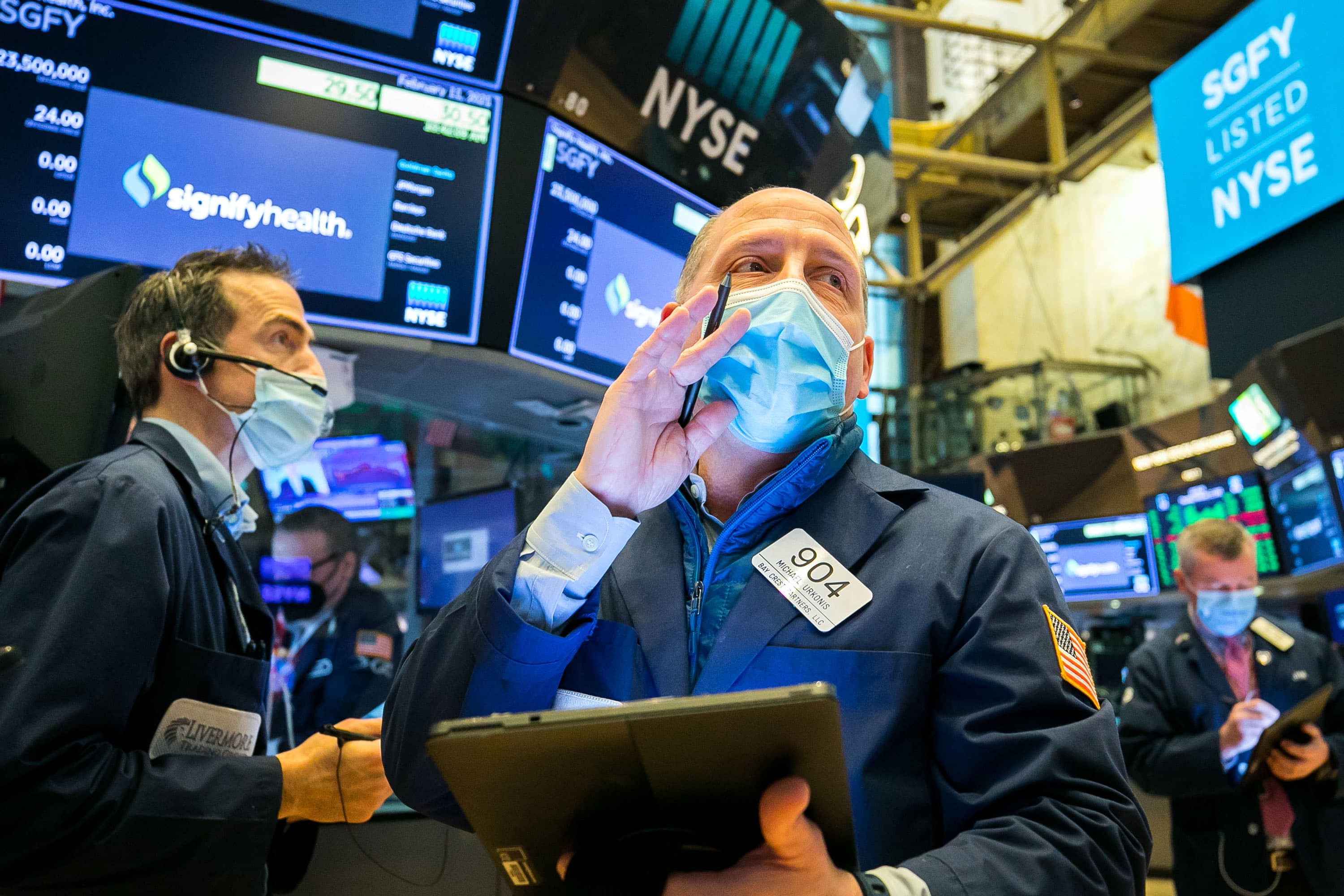
U.S. stock futures were lower in early Tuesday trading as tech stocks continued to fall sharply in the face of higher interest rates and a rotation into stocks more linked to the economic comeback.
S&P 500 futures lost 0.5%, giving up gains earlier in the overnight session. Futures on the Nasdaq 100, home of Big Tech, lost 1.5%. Dow Jones Industrial Average futures shed 20 points.
The move in futures comes after a Monday session marked by stark differences in the performance of the market’s sectors. The tech-heavy Nasdaq Composite slid 2.5%, while the Dow rose a modest 27 points. Travel stocks, including airlines and cruise lines, rose sharply across the board, but Apple and Tesla declined.
The broader market finished lower Monday, as the S&P 500 slipped 0.7% for its fifth straight negative session. The decline came as U.S. Treasury yields rose again, reflecting a fall in the price of bonds.
Tesla was down another 6% in premarket trading Tuesday following a 9% decline on Monday. Apple lost 2% in early trading following a 3% slide on Monday. The iPhone maker’s stock is down 9.4% over the last month through Monday’s close.
The 10-year Treasury yield rose on Tuesday to around 1.37%. So far this month, the benchmark rate has moved up hefty 28 basis points. The 30-year yield touched a one-year high of 2.2% Monday. A basis point is 0.01%.
“The higher Treasury yields move up, the quicker investors are rotating out of high-flying tech stocks and into stocks in the Russell 2000 Index and Dow Jones Industrial Average,” OANDA senior market analyst Edward Moya said in a note.
The bond market will likely remain a key topic of discussion on Tuesday, as Fed Chair Jerome Powell begins two days of congressional hearings. The central bank chief has been adamant that the Fed is not considering raising its benchmark interest rate, but Powell’s comments will be scrutinized for possible insight into the economy’s inflation outlook.
Inflation fears have risen in recent weeks as policymakers debate another round of economic relief as Covid cases decline. Investors fear that — despite the Fed’s promises — a spike in prices the result of federal stimulus could force the central bank’s hand to raise short-term borrowing costs.
The U.S. surpassed 500,000 deaths from the virus on Monday, according to Johns Hopkins University.
In corporate developments, Facebook reached an agreement with the Australian government and will restore news pages in the country again, just days after restricting them.




